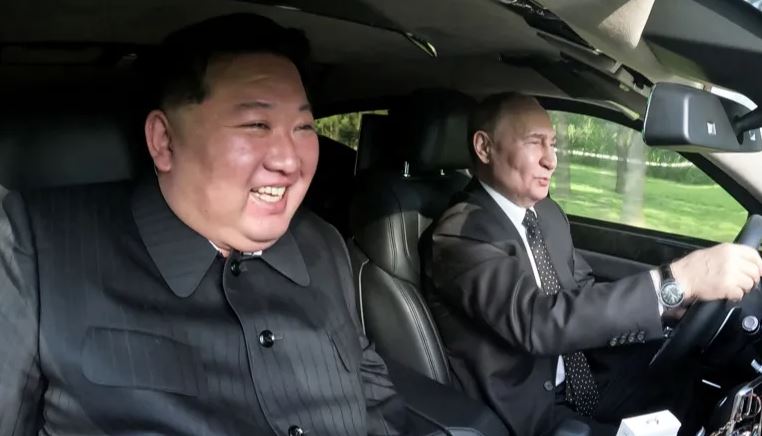North Korea & Russia New Defense Deals
A Significant Shift in Global Politics: Putin's Visit to Pyongyang
Recently, a landmark event unfolded as Russia’s President Vladimir Putin visited Pyongyang, marking a significant shift in global politics. During this visit, Russia and North Korea agreed to provide “immediate military assistance if either nation faces armed aggression.” This pivotal agreement not only strengthens the bond between Russia and North Korea but also highlights the growing isolation of these countries from the rest of the world.
Historical Background
The roots of this alliance trace back to post-World War II, when the Soviet Union played a crucial role in establishing a communist government in North Korea. During the Korean War, the Soviet Union provided substantial military support to North Korea. The relationship was formalized with the Treaty of Friendship, Cooperation, and Mutual Assistance in 1961, which included a mutual protection clause. However, this alliance weakened after the fall of the USSR in 1991.
Renewed Relations in the 21st Century
Since Vladimir Putin took office in the early 2000s, Russia has been working to restore and strengthen its ties with Kim Jong-un's regime in North Korea. Despite this renewed relationship, Russia has remained critical of North Korea’s nuclear ambitions and has supported sanctions aimed at curbing Pyongyang’s nuclear capabilities.
Details of the Latest Pact
The recent agreement between Russia and North Korea encompasses various areas of cooperation, with a strong emphasis on defense aid and technology. Significantly, it includes a mutual defense clause similar to the one in the 1961 treaty. Article 4 of the new deal stipulates that in the event of armed aggression, military aid must be dispatched immediately.
This development has heightened security concerns in South Korea and Japan, both already wary of North Korea’s military capabilities. The new pact is likely to prompt these nations to bolster their defense strategies and strengthen their military alliances with the United States. NATO and other Western allies view this agreement with apprehension, perceiving it as a potential threat to global peace and security.
In summary, Putin’s recent visit to Pyongyang and the subsequent agreement signify a major change in international relations, with implications that could reshape global security dynamics.


